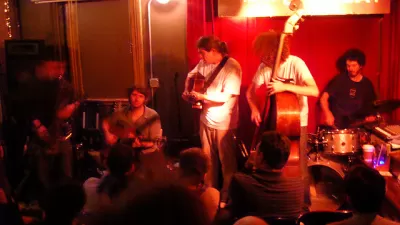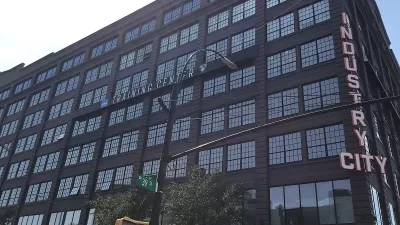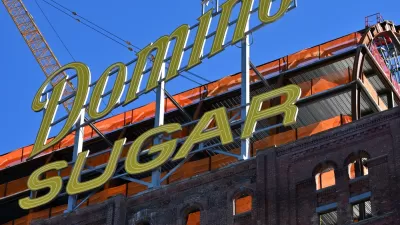Joseph Berger examines how gentrification in certain Brooklyn neighborhoods has revealed a conflict of values among residents.
Gentrification has been a hot button issue for some time, and continues to be a topic of ongoing debate for residents of Brooklyn, now a global icon of cool. Many who live in the "other Brooklyn", in such neighborhoods as Homecrest, Sheepshead Bay, Manhattan Beach and Gerritsen Beach want nothing to do with gentrified Brooklyn, eschewing the more up-and-coming areas for the comfort and convenience of a "residential, suburban" lifestyle. "We're not looking for innovative ways to do things," says Community Board 15 chairwoman Theresa Scavo. "When people hear about the new Brooklyn, they say let them have it."
These sentiments, Berger writes, are not echoed by all in the borough, however. Residents and elected officials recognize the economic and social benefits that gentrification could bring to their communities. "'I'm glad Brooklyn is making a name for itself and it's coming up, but if it's coming up, it should be spread out,' said Joycelyn Maynard, who runs the Stone Avenue Library, a nearly 100-year-old branch in Brownsville, an area struggling with unemployment, foreclosed homes, troubled schools and gang shootings. ‘I think they pay more attention to parts of Brooklyn that are gentrified.'"
While some neighborhoods are enjoying the introduction of trendy restaurants and shops, others like Sunset Park and Brownsville continue to suffer from neglect by public officials and private developers. Says resident Maynard, the focus on gentrification detracts from more fundamental concerns. Of her Brownsville neighborhood, she asks, "Here, how can you have a cafe where people eat in the sun if they're concerned about gangs shooting each other?"
Editor's Note: This post has been updated to clarify which neighborhoods were thought to value a "suburban" lifestyle.
FULL STORY: As Brooklyn Gentrifies, Some Neighborhoods Are Being Left Behind

Planetizen Federal Action Tracker
A weekly monitor of how Trump’s orders and actions are impacting planners and planning in America.

Map: Where Senate Republicans Want to Sell Your Public Lands
For public land advocates, the Senate Republicans’ proposal to sell millions of acres of public land in the West is “the biggest fight of their careers.”

Restaurant Patios Were a Pandemic Win — Why Were They so Hard to Keep?
Social distancing requirements and changes in travel patterns prompted cities to pilot new uses for street and sidewalk space. Then it got complicated.

Platform Pilsner: Vancouver Transit Agency Releases... a Beer?
TransLink will receive a portion of every sale of the four-pack.

Toronto Weighs Cheaper Transit, Parking Hikes for Major Events
Special event rates would take effect during large festivals, sports games and concerts to ‘discourage driving, manage congestion and free up space for transit.”

Berlin to Consider Car-Free Zone Larger Than Manhattan
The area bound by the 22-mile Ringbahn would still allow 12 uses of a private automobile per year per person, and several other exemptions.
Urban Design for Planners 1: Software Tools
This six-course series explores essential urban design concepts using open source software and equips planners with the tools they need to participate fully in the urban design process.
Planning for Universal Design
Learn the tools for implementing Universal Design in planning regulations.
Heyer Gruel & Associates PA
JM Goldson LLC
Custer County Colorado
City of Camden Redevelopment Agency
City of Astoria
Transportation Research & Education Center (TREC) at Portland State University
Camden Redevelopment Agency
City of Claremont
Municipality of Princeton (NJ)





























